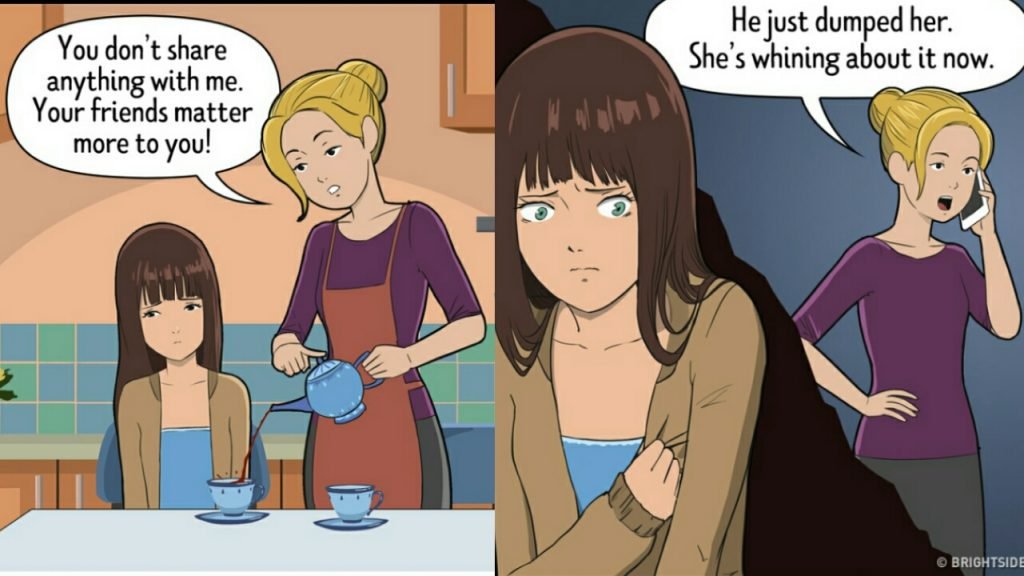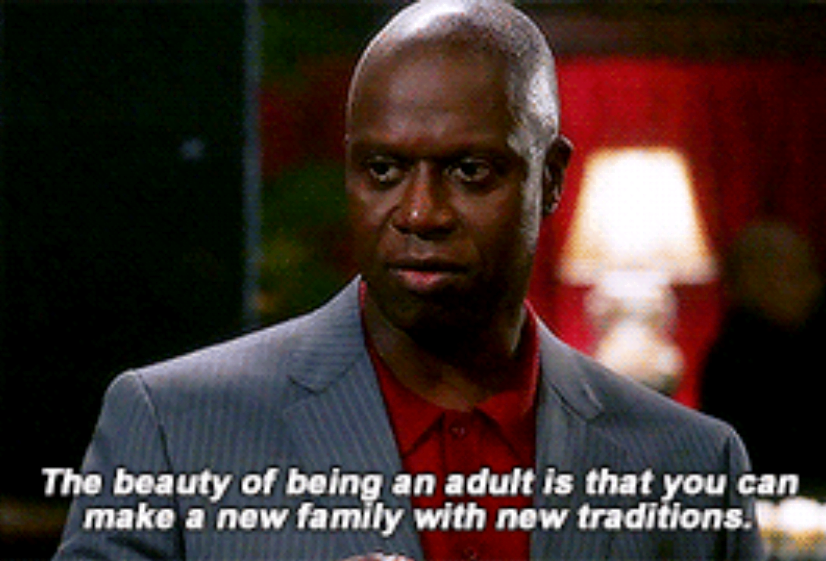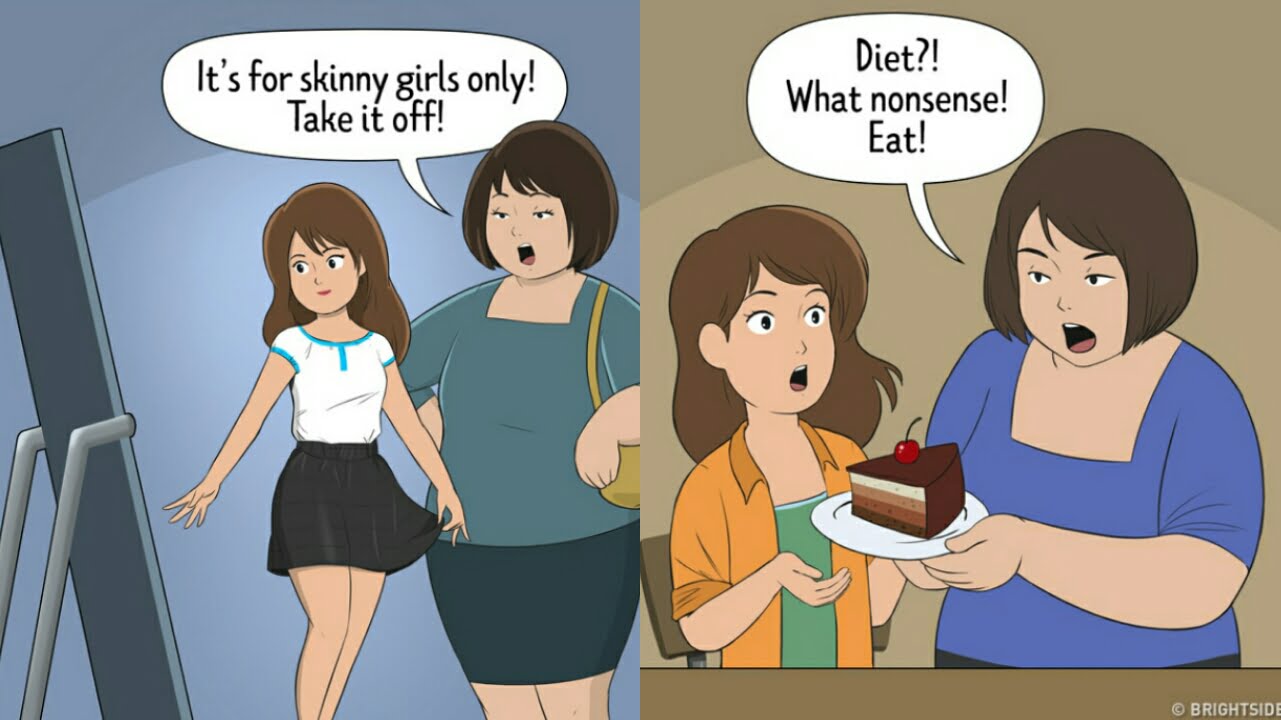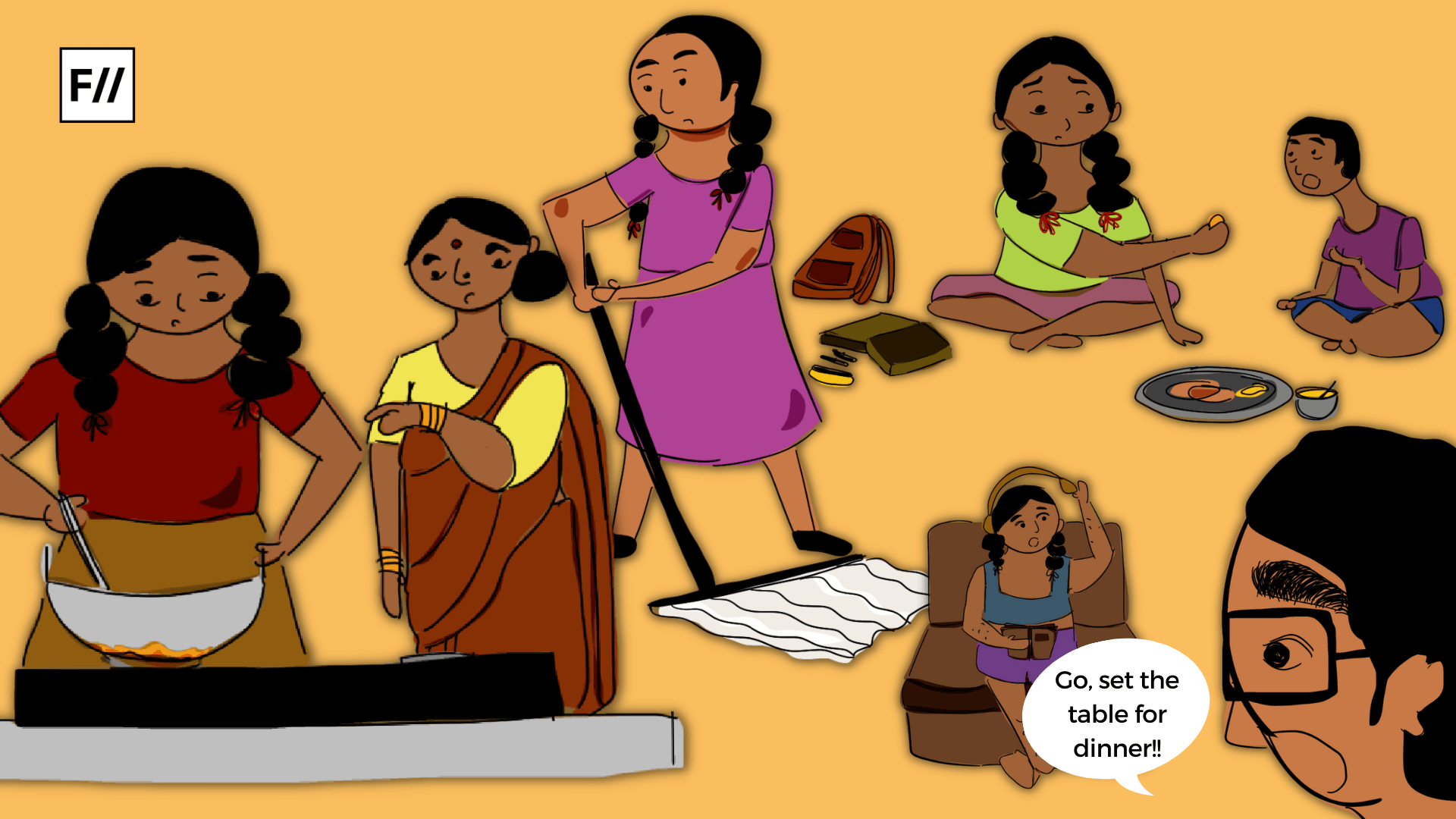Growing up in a patriarchal system, I’ve witnessed mothers of my peers casually exercise toxic behaviour in a race to raise daughters who fit inside the prejudice of the society they are part of, or, just because they are immature. The earliest memory of a toxic mother behaviour goes back to when I was doing my class 8: my dance group was prepping for a show, and my friend’s mother had put her in a liquid diet for a month so that she would look “good” for her performance. My friend ended up not performing as she fell ill and her mother blamed her for it, again.
Recently, I dressed up for a friend’s wedding and walked into a room full of mothers whom I’m possibly seeing after seven years. One of whom started the conversation with, “Thank god, you finally look like a girl.” This got me thinking if even the most-woke daughters raised by such parents would spat the same toxic behaviour subconsciously, they might lose track of feminism or feminist values.
Overlooking the Obvious
First, it’s important to note that is not the daughter’s fault that they (might) have a toxic mother and it is completely okay if they don’t want to attach labels to it. It is also important to recognise that women are often the primary parents in a heterosexual relationship, whereby they are expected to perform care work such as rearing children. And since, feminist revolution cannot come in a day or two, we need to still look into the already existing relationships that mother and children share. Hence, we need to have this conversation about toxic mothers.
I didn’t realise until recently that being constantly critical and comparative about your marks and otherwise, can leave the inner-child of an adult hungry for reassurance and on a never ending quest for praise and validation. These mothers have normalised that love comes with strings attached.
While there is a thin line separating abuse and toxicity, it is important to know they are not the same thing and abusive behaviour should not be tolerated at all. While both abusive and toxic behaviour involves a temperamental, critical and highly judgmental environment that may lead you to feel invalidated, shamed, or uncared for by your mother, abusive relationships—whether physical, emotional, or both—on the other hand, threaten your well-being and safety.

Image Source: BrightSide
Every mother comes from complex family dynamics. Most carry the legacy of patriarchy, they are all—at the very least—historical victims of patriarchal socialisation. Keeping this in mind, you need to know that it is still her choice to act a certain way. And that choice is/was never influenced by your actions.
The toxic traits include constantly competing with you and making you feel inadequate under the pretext of being a ‘cool mom’; making every conversation about herself and making you feel guilty, angry, or invisible by the end of it; manipulating you for her problems, holding you accountable for her failures in life; making negative comments or jokes about you in front of family and your friends, without regard for how her words may affect you; invalidating your views for being over-sensitive or unable to take a joke/criticism.
Criticising you for feeling bad, irrespective of the reason; blatantly rejecting expressing anger towards her and not listening; disrespecting your personal boundaries; traumatising you with authoritative instructions on how you should behave, dress, and do—are all forms of control.
Criticising you for feeling bad, irrespective of the reason; blatantly rejecting expressing anger towards her and not listening; disrespecting your personal boundaries; traumatising you with authoritative instructions on how you should behave, dress, and do—are all forms of control. Justifying their terrible actions because you deserved it; resorting to regularly guilt-tripping you with “after everything I have done for you” or shut you out with silent treatment, are all signs of toxic behaviour.
Most mothers are guilty of a few of these traits, or even all. While normalising this is not right, it is okay if you want to/don’t want to call out her behaviour but the victims of toxic mothers must recognise the pattern.
Internalised Patriarchy
“My mom’s feelings can change from moment to moment. When I was in school, she used to compare my grades with my brother’s and belittle me for not scoring well, and this one time when I was selected in my school’s science team to travel to a different state for a competition she didn’t allow me because she said, ‘your brother will feel bad if you go, he never got to do this.’ My brother is five years older to me and never bothered what I did or not. Cut to 19 years, I got a job as a professor in my dream college, different from a city where my husband and I live, and my mother asked me to turn down the job. Why? Because my husband’s career should be put first. The male has to be the primary breadwinner. Now that I think of it, she didn’t want me to go with my science team, not because my brother will feel bad, but because she wanted to save his male ego, also so that she can continue to put me down.“
– Anonymous, 35
Internalised patriarchy or internalised sexism is a term when an individual exhibits learned sexist behaviour and attitudes towards themselves and people of their own sex. Mothers who have internalised patriarchy so deeply don’t know the wrong in their perspective. They coerce their kids to fall under a line, a certain notion, that holds the patriarchy together, which they don’t realise for a very long time or never—is toxic. The psychological fear of not falling in line and sticking out is instilled in us early which holds men in power of position.
You Are Not Your Mother, Even If She Says So
To answer the title question: Not always. Not always, a toxic mother can raise a feminist daughter but that daughter she raised can always be a self-taught feminist. And that is the biggest milestone in healing. Healing is not restoring damaged to new, it is more like the Japanese art of Kintsugi. When a valuable or cherished ceramic object is broken, the Japanese repair the piece with lacquer mixed with precious metals—gold, silver, or copper—so that the breaks are not only visible but form a pattern of their own, testifying to the object’s history while transforming how it looks. The repaired object remains its old self while becoming an emblem of resilience and newly envisioned beauty.
To answer the title question: Not always. Not always, a toxic mother can raise a feminist daughter but that daughter she raised can always be a self-taught feminist. And that is the biggest milestone in healing.
Most daughters normalise what they’ve seen growing up for the first five years of their life and it’s only when they get independent and see other households they partially realise what they are made to be part of. They wrongly believe that they need to heal from the lack of love they experienced but, in truth, that’s really only a very small piece of the pie; far more important is to be able to see how your mother’s treatment shaped you in ways large and small which affect you in your adult life without your being able to see their provenance.
Also read: 7 Toxic Practices Around Reproductive Health And How We Can Stop Them
The chances are good that you think that the behaviors that get in the way of your happiness and ability to thrive are inborn traits, but they’re not. Some of them are coping skills you learned in childhood such as pushing off from or denying your feelings, trying not to draw attention to yourself, never allowing yourself to speak your mind, trying to figure out how to please people first and foremost, for example.
Always Room For New Habits
As someone who always resort to fictional characters for comfort, I recall Captain Holt from Brooklyn 99 here: “The beauty of being an adult is that you can make new family with new family traditions.”

Feminism involves much more than gender equality and it involves so much more than gender. Push on and start having a comfortable relationship with your body; discourage body shaming; instill the idea of boundaries, then respect them; cultivate empathy; squash stereotypes; be mindful of your peeping toxic behaviour; make mistakes and have an open mind to change; invite others, seek help.
Also read: Kabir Singh: The Poster Boy For Toxic Masculinity
We have a choice: to stay on the hamster wheel or step off and break the cycle. The latter need not always mean shutting down the parent or cutting them off or to not love them or be angry with them. It could be a simple change to rationally educate them, support them if they are willing to look deep within themselves and make some critical changes. But don’t be guilty if you don’t want to help them. You do you: Break the cycle, your way.
Reference
Feature Image Source: Bright Side




